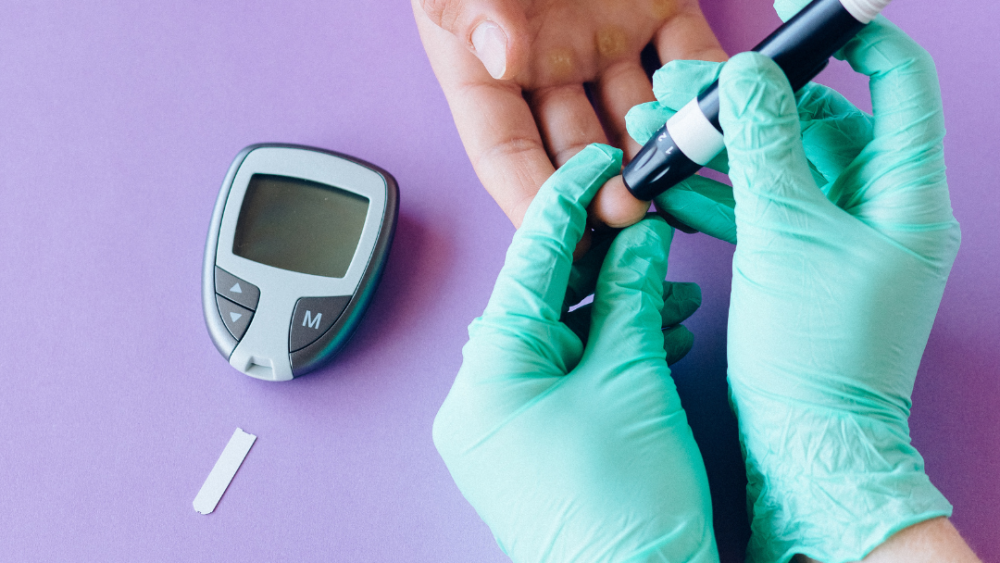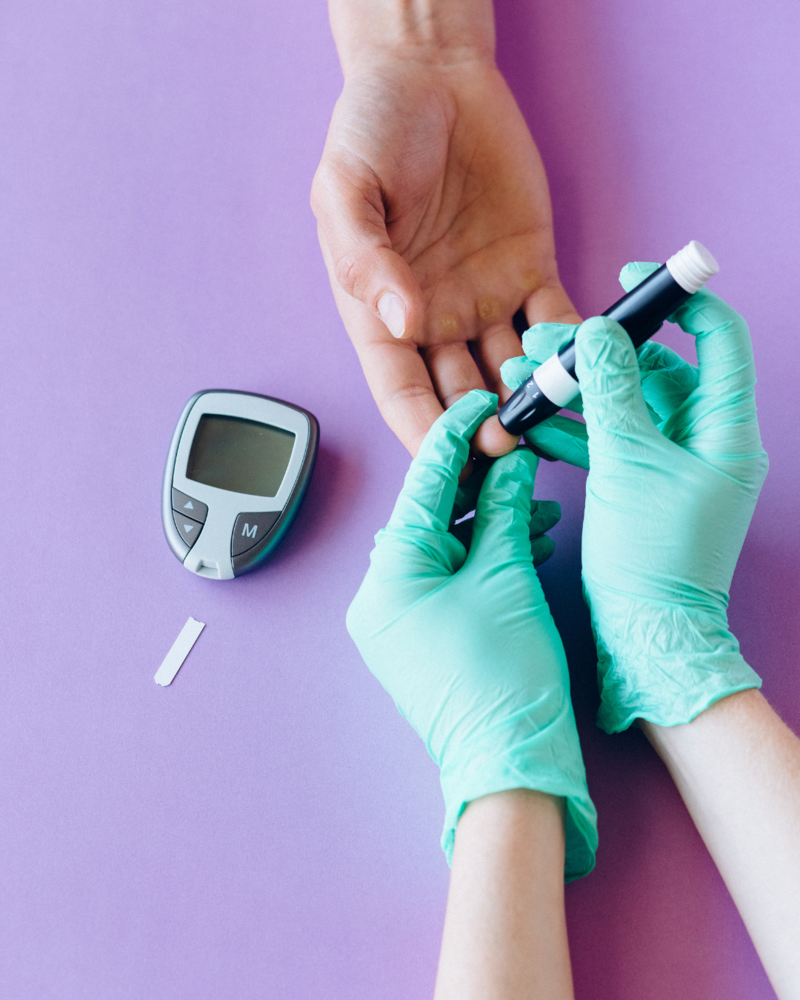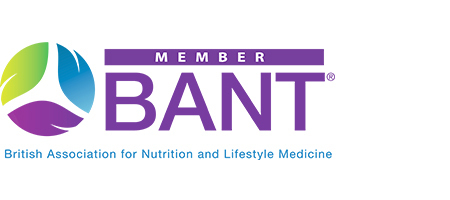Early Signs of Type 2 Diabetes: What to Watch Out For from a Functional Medicine Perspective

posted 24th June 2025

Understanding the early signs of type 2 diabetes is crucial, as early intervention can make a significant difference in both managing and potentially reversingthe condition.
Working with a Registered Nutritional Therapist or a Functional Medicine Practitioner can help identify the root causes of your symptoms and support your efforts in improving metabolic health, insulin sensitivity, and weight management.
In this article, we will explore the most common early signs of diabetes, the connection with insulin resistance and weight gain, and practical steps you can take to address these issues through a functional medicine approach.
1. Unquenchable Thirst and Increased Urination
One of the earliest signs of type 2 diabetes is an overwhelming sense of thirst, often referred to as polydipsia. As blood sugar levels rise, the kidneys attempt to flush out excess glucose, leading to increased urination. This frequent urination is the body’s way of trying to manage the excess sugar in the bloodstream.
From a functional medicine perspective, insulin resistance often plays a key role in this process. When insulin becomes less effective, glucose builds up in the blood, and the kidneys work overtime to eliminate it, resulting in dehydration and constant thirst.
Tip: If you find yourself drinking water constantly without feeling satisfied, it's important to monitor your blood sugar levels, as this could be a sign of metabolic dysfunction, however, often times blood glucose can be within the normal range and insulin levels elevated (testing the insulin levels are imperative!).
2. Unexplained Weight Gain or Difficulty Losing Weight
Weight gain, particularly around the abdomen, is a common symptom of insulin resistance and prediabetes. Insulin is the hormone responsible for helping glucose enter cells for energy. When your cells become resistant to insulin, the body compensates by producing more insulin, which can increase fat storage, especially in the abdominal area and the sense of hunger, as the cells are not receiving the much needed fuel to produce energy..
This type of weight gain is often one of the earliest signs of developing diabetes, as the body's inability to regulate blood sugar efficiently can lead to increased fat accumulation. In fact, insulin resistance is strongly linked to visceral fat (fat around the organs), which contributes to metabolic disturbances and worsens insulin resistance.
Functional Medicine Insight: To address weight gain and insulin resistance, a whole-foods-based diet, low in processed carbs and refined sugars, and rich in fibre and healthy fats can help improve insulin sensitivity and support weight management.
3. Chronic Fatigue and Low Energy
Fatigue is another common symptom that can be linked to insulin resistance and diabetes. When insulin resistance occurs, the body's cells are less able to absorb glucose for energy. Despite eating, your cells remain deprived of energy, leaving you feeling tired and sluggish, even after a good night's sleep.
Functional Medicine Approach: Supporting energy production involves improving insulin sensitivity through dietary changes (such as focusing on low glycaemic index foods), as well as adding lifestyle factors like stress management, adequate sleep, and regular physical activity.
4. Blurred Vision
Blurred vision is another symptom that may point to elevated blood sugar levels. High blood sugar can pull fluid from tissues in the body, including the lenses of the eyes, which leads to changes in the ability to focus. If this symptom is persistent, it could be an early sign of diabetes-related complications.
Tip: In functional medicine, we look at blood sugar regulation and nutrient support (such as antioxidants and omega-3s) to help protect eye health and support optimal circulation.
5. Slow Healing and Frequent Infections
High blood sugar impairs your immune system’s ability to function optimally. It can hinder the body's natural ability to heal wounds and fight infections. If you notice cuts or bruises taking longer to heal, or if you experience frequent infections, this could be a sign that yourblood sugar levels are not well-managed.
In functional medicine, we aim to enhance immune function through balanced blood sugar, proper nutrition, and supportive supplements - where needed - (such as vitamin C, zinc, and probiotics) to help the body’s natural defences.
6. Tingling or Numbness in Extremities
Neuropathy, or nerve damage, is a common complication of poorly controlled diabetes. Insulin resistance and high blood sugar levels can damageblood vessels, leading to reduced circulation and nerve function. If you notice tingling, numbness, or pain in your hands or feet, it's important to investigate the underlying cause.
Functional Medicine Approach: By addressing insulin resistance, inflammation, and nerve health, functional medicine practitioners work to reduce nerve damage and promote healing through diet, lifestyle, and targeted supplementation (such as alpha-lipoic acid and B vitamins).
7. Increased Hunger Despite Eating
Excessive hunger, especially after eating, is another sign that your body isn’t efficiently using glucose for energy. When cells resist insulin, the brain doesn’t receive signals that you’ve had enough to eat, prompting a constant sense of hunger. This can lead to overeating and weight gain, exacerbatinginsulin resistance.
To combat this, functional medicine often focuses on balancing blood sugar and supporting the gut microbiome, which plays a role in regulating hunger signals. Eating protein-rich meals and foods high in fibre can help improve satiety and reduce overeating.
8. High Blood Pressure (Hypertension)
High blood pressure is another common condition linked to type 2 diabetes and insulin resistance. Elevated blood sugar can damage blood vessels over time, leading to increased pressure within the arteries. This condition, known as hypertension, is a significant risk factor for heart disease and stroke.
Functional Medicine Insight: Managing blood pressure in the context of insulin resistance involves optimising diet to support vascular health, reducing inflammation, and supporting healthy cortisol levels through stress management techniques and nutrient-dense foods rich in potassium and magnesium.
9. High Cholesterol (Dyslipidemia)
High cholesterol is a frequent companion of insulin resistance and metabolic dysfunction. When insulin resistance develops, the body produces more fat-storing insulin, and cholesterol levels, especially LDL ("bad" cholesterol), may rise. This can increase the risk of atherosclerosis (plaque build-up in arteries), further contributing to cardiovascular disease.
Functional Medicine Insight: In functional medicine, we address cholesterol imbalance through dietary changes that reduce inflammation and support healthy fat metabolism. Incorporating omega-3 fatty acids from sources like fatty fish and flaxseed, along with fibre-rich foods, can help regulate cholesterol levels and improve heart health.
10. Disrupted Sleep
Disrupted sleep, or insomnia, is commonly associated with both insulin resistance and the early stages of type 2 diabetes. High blood sugar and insulin fluctuations can interfere with your ability to fall asleep or stay asleep through the night. Additionally, night time hypoglycaemia (low blood sugar) can cause you to wake up feeling anxious or jittery, further disrupting your sleep cycle.
Functional Medicine Insight: A balanced blood sugar level throughout the day is essential for improving sleep quality. Functional medicine practitioners focus on dietary adjustments, stress reduction techniques, and supporting adrenal health to help you achieve better, more restful sleep.
How Functional Medicine Addresses Insulin Resistance and Diabetes
By focusing on root causes and using a holistic approach, functional medicine aims to:
- Identify and address insulin resistance, which is a key factor in the development of type 2 diabetes.
- Optimise nutrition through a whole-foods-based diet that includes low glycaemic foods, healthy fats, lean proteins, and fibre-rich vegetables.
- Support detoxification pathways to help the body eliminate excess toxins that may contribute to insulin resistance.
- Enhance gut health since a balanced microbiome can support healthy blood sugar regulation and reduce inflammation.
Final Thoughts:
Recognising the early signs of insulin resistance and type 2 diabetes is essential for preventing long-term complications.
If you're experiencing any of the symptoms mentioned above, it’s crucial to seek help from a functional medicine practitioner who can guide you toward an individualised plan to improve your metabolic health and reverse the effects of insulin resistance.
A comprehensive blood test, including HbA1c, HOMA-IR or insulin levels, can provide valuable insight into your metabolic health and help tailor a functional medicine protocol that suits your needs.
Transform your health by booking a FREE Health Review with me today, and let's work together to uncover the root causes of your symptoms.
References:
NHS (National Health Service): https://www.nhs.uk/conditions/diabetes/
Diabetes UK: https://www.diabetes.org.uk/
European Association for the Study of Diabetes (EASD): https://www.easd.org/
National Institute for Health and Care Excellence (NICE): https://www.nice.org.uk/
International Diabetes Federation (IDF): https://www.idf.org/













